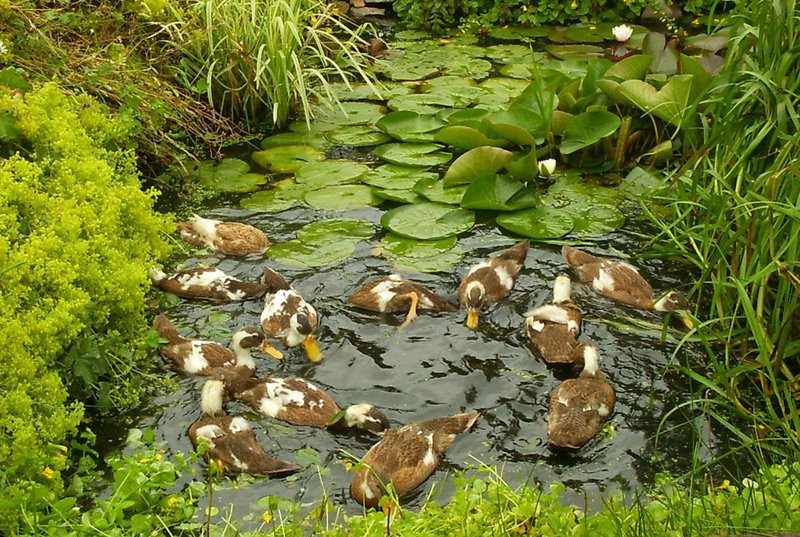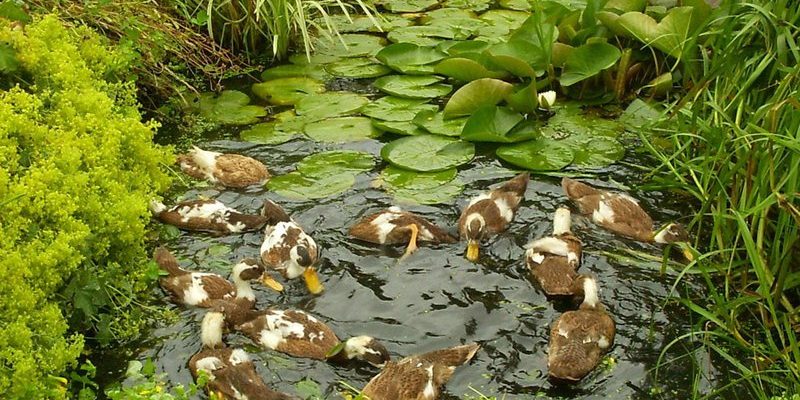
Just like how we need certain conditions to feel comfortable—think about how you feel on a hot summer day when you just want to hop into a cool pool—ducks have their own preferences when it comes to their water habitat. While it’s tempting to believe that all ducks need is a warm, sunny spot and some feed, the reality might be a bit more complicated.
So, grab a cup of coffee, and let’s explore the relationship ducks have with water, starting with why it plays such a crucial role in their lives.
Understanding Ducks’ Water Needs
Ducks are fascinating creatures, and their water needs are tied to their natural behaviors. They are born swimmers and incredibly social animals that love to be in groups. When ducks have access to water, it isn’t just about taking a dip or washing off the mud. Water helps them with foraging, mating rituals, and even thermoregulation—that’s a fancy way of saying they keep their body temperature balanced.
Think of ducks like us after a long hike: we need water to refresh ourselves and fuel our bodies. Ducks are no different. When they forage for food, like aquatic plants, insects, and crustaceans, having access to water makes it easier. They can submerge their heads to search for tasty treats, much like how we might dip our hands into a stream to catch fish.
So, providing a proper water source isn’t just a luxury for ducks; it’s essential for their well-being and quality of life.
What Happens When Ducks Don’t Have Enough Water?
You might be wondering, “What’s the worst that could happen if ducks don’t have a pond?” Well, let’s break it down. Ducks deprived of adequate water sources can face a range of issues.
First off, without enough water to swim in, they will miss out on essential grooming. Ducks have a special gland that produces oil to coat their feathers, keeping them waterproof. They need water to help spread that oil around, ensuring they stay dry and insulated. If ducks can’t groom properly, they become susceptible to cold temperatures and could even face health issues, like hypothermia.
Additionally, lacking access to water can lead to stress. Ducks are social animals and thrive in groups. If they don’t have space to cool off and socialize, their overall happiness and mental health can decline. Imagine being stuck in a small room with no windows or fresh air—miserable, right? That’s how ducks feel without proper water access.
The Role of a Pond vs. Other Water Sources
Now, let’s talk about the pond versus other water sources like kiddie pools or troughs. A pond offers more than just a place to swim. It creates a complete ecosystem, supporting not only ducks but also plants and other wildlife. In a pond, ducks can dive for food and engage in natural behaviors that are hard to replicate in smaller spaces.
On the flip side, if you don’t have the space for a pond, smaller water sources can still meet their needs. A kiddie pool can serve as a temporary water playground. Just remember to keep it fresh and clean! You can also use a water trough but ensure it’s deep enough for them to dunk their heads and get comfortable.
To put it simply: while a pond is ideal, you can still provide a healthy, engaging environment for your ducks without one. The key is ensuring they have enough space and depth to swim, forage, and groom themselves.
Maintaining Water Quality for Ducks
When it comes to ducks, water quality is paramount. Stagnant water or water that’s filled with waste can lead to health problems. Ducks tend to make a mess wherever they go, and that can lead to bacteria build-up and algae growth in stagnant water.
So, if you’re using a kiddie pool or trough, change the water frequently—ideally every couple of days—to keep it clean. You might also consider putting a simple filtration system in place if you’re setting up a more permanent solution.
Don’t underestimate the importance of water cleanliness. Ducks are more likely to thrive when they have access to fresh and clear water, helping them avoid diseases and maintain their vibrant feathers.
Seasonal Considerations for Ducks’ Water Needs
Ducks’ water requirements can vary with the seasons, so keep an eye on them as the weather changes. In summer, they need plenty of water for cooling off. Imagine how hot it gets outside and how you dash for a refreshing drink or a dip in the pool. Ducks feel that heat too!
In the winter, however, you’ll want to ensure they have access to unfrozen water, which can be a challenge in colder climates. Ducks can still splash and play in water, even if it’s chilly, but you need to provide a source that won’t freeze solid. Heated water bowls can be a great investment if you live in a frigid area.
It’s all about adapting to their needs and keeping them comfortable throughout the year.
So, do ducks need a pond? Well, ideally, yes! But it’s not a strict requirement. Ducks thrive in environments that offer them the chance to swim, forage, and socialize. Whether you have a lovely pond, a kiddie pool, or a trough, the crucial part is ensuring they have access to clean, deep water.
Providing ducks with the right water environment not only enhances their quality of life but also allows them to display their natural behaviors. So, whether you’re a seasoned duck keeper or just starting, keep their water needs in mind. Happy quacking!

